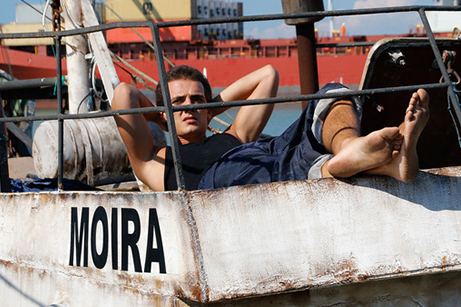Financial Times: "The rebirth of film-making in Georgia"


The resurgence of filmmaking in Georgia serves as a reminder of its rich cinema legacy, writes Maya Jaggi for global business newspaper Financial Times.
The reporter guides the reader through the history of Georgian film as a background for the "cinematic revival" in the country.
Jaggi interviews filmmaker Levan Tutberidze - director of award-winning feature film Moira - about the past and present of Georgian cinema.
Tutberidze is also being celebrated this month at Regent Street Cinema in London, United Kingdom (UK), for which Jaggi serves as artistic director.
The earliest projections in Georgia were in 1896 — a year after the Lumiere brothers showed their film in Paris. Tbilisi’s first cinema opened in 1904. Films survive from at least 1912, with Akaki Tsereteli’s Trip to Racha and Lechkumi, made by Vasil Amashukeli, a 40-minute record of a white-bearded poet’s mountain journey that Georgians claim as the world’s first full-length documentary," writes Jaggi.
The history of film in Georgia features heavily in the article, with a special mention going to Soviet-era filmmakers who made their mark on the industry.
Illustrious Soviet Georgian directors include Mikhail Kalatozov, whose The Cranes Are Flying(1957) began its own new wave during Khrushchev’s thaw, the frequent political prisoner Sergei Parajanov, and Tengiz Abuladze, who died in 1994."
The piece in Financial Times also cites recent Governmental incentives enticing foreign filmmakers to shoot in Georgia. She also shares her impressions on social themes in Tutberidze's Moira - which will have its UK premiere during the Georgian weekend at Regent Street Cinema on April 16-17.
The drama, of a young man released from jail who tries to support his family with a fishing boat named after the goddess of fate, touches on criminality and kidnapping in a land awash with guns. Yet, with a father disabled in a port accident and a mother who returns from Greece singing "Never on Sunday”, the film also signals the legions of resourceful women who weathered economic collapse by working abroad," writes Jaggi about the film that claimed the Best Film award at the Asian World Film Festival in Los Angeles last year.
Read the full article here: www.ft.com
 Tweet
Tweet  Share
Share